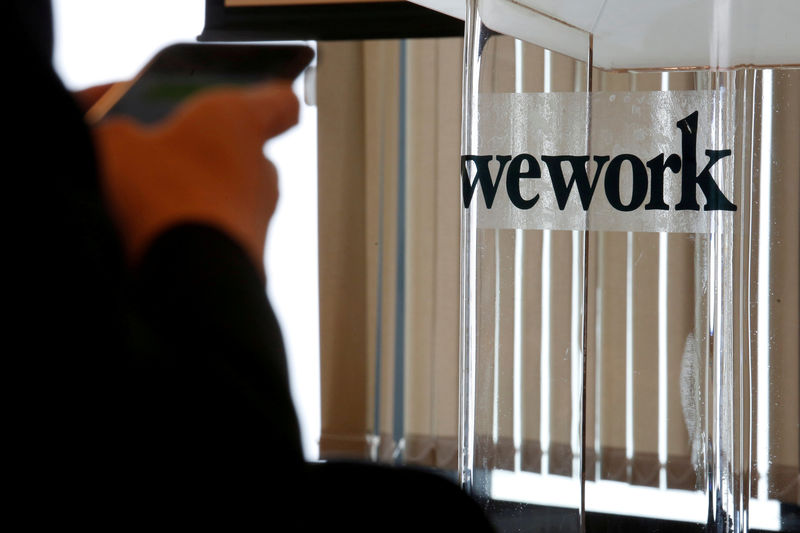By Joshua Franklin
NEW YORK, Sept 4 (Reuters) - WeWork owner The We Company took some steps on Wednesday to burnish its appeal to investors ahead of its initial public offering by adding a woman, Frances Frei, to its all-male board and announcing that its CEO would return a $5.9 million payment for use of the trademarked word "We."
The moves follow investor criticism of We Company's IPO filing last month, which revealed extensive and unusual ties between the office space sharing startup and its controlling shareholder, CEO Adam Neumann, including him being a landlord to the company on some properties. governance advocates cautioned the We Company's latest steps may not be enough to quell concerns about Neumann's grip on the company, cemented by a multi-class share structure designed to give him operational control.
"These are positive steps," said David Erickson, a senior fellow and finance lecturer at the University of Pennsylvania's Wharton School.
"The challenge is, from my vantage point, you've got a CEO who is going to control decision making that has to date not demonstrated the good judgment that I would expect from the CEO of a public company."
Frei, a professor of technology and operations management at Harvard Business School, will join WeWork's board once it completes the IPO, planned for later this month.
The We Company had originally planned to go public with an all-male seven-member board, a practice major investors such as BlackRock Inc (NYSE:BLK) BLK.N frown upon https://de.reuters.com/article/us-blackrock-climate-exclusive/exclusive-blackrock-vows-new-pressure-on-climate-board-diversity-idUKKBN16K0CR, saying more diverse boards make better decisions.
The We Company also said in an amended filing it will add another director to its board within a year of the IPO, "with a commitment to increasing the board's gender and ethnic diversity."
The deal to pay Neumann for use of the "We" trademark came after the decision to rebrand WeWork as the We Company earlier this year.
WeWork, which rents desks to companies and individuals with a focus on startups and entrepreneurs, has helped popularize the concept of shared office space. It was valued at $47 billion earlier this year.
Despite the company's breakneck growth, there are investor concerns over a mismatch between its cash flow and liabilities, given that it rents workspace to clients under short-term contracts, but pays rent for them itself under long-term leases.
New York-based We Company, founded in 2010, saw its revenue double to $1.54 billion in the first half of this year, though its losses were 25% higher during the period than a year earlier, at $900 million.
